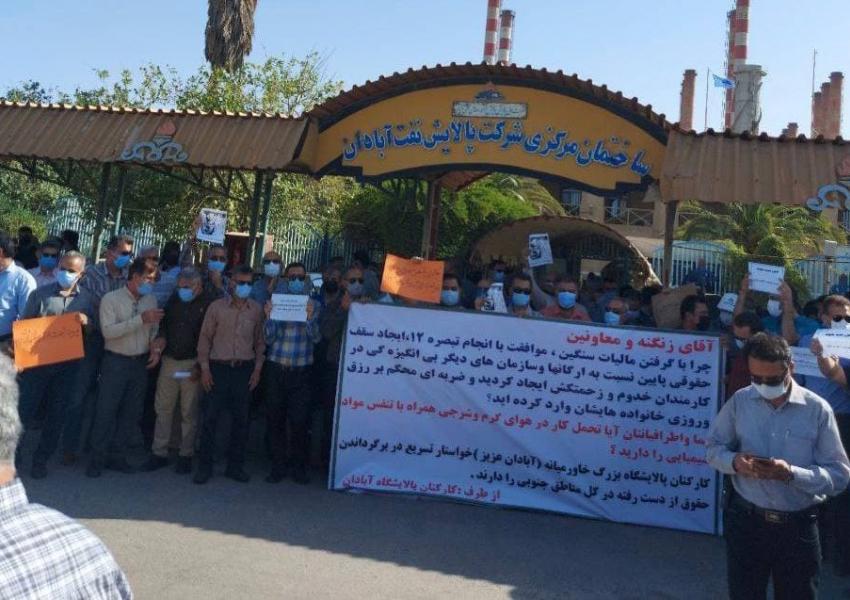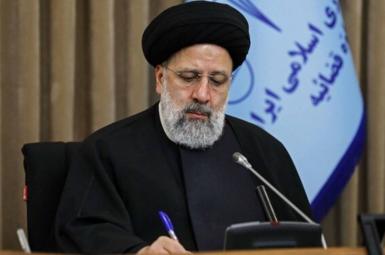
Iran Parliament Committees To Discuss Petrochemical, Oil Workers’ Strikes
The Iranian Parliament's Energy Committee will hold an extraordinary session with Oil Minister Bijan Namdar Zaganeh Sunday June 27 to find ways to discuss strikes and unrest in the oil sector, the committee chairman Fereydoun Hassanvand said Thursday.
A strike has spread across the country since June 19 called by the Coordination Council of Oil Industries Contract Workers, and has involved several oil companies, refineries and petrochemical plants. Hassanvand said President Hassan Rouhani, Chief Justice and President-election Ebrahim Raisi (Reesi), Parliament Speaker Mohammad Bagher Ghalibaf (Qalibaf) were all involved with other government bodies in discussing ways to address the workers' problems.
According to social-media posts with the hashtag "Campaign1400," the striking workers want higher pay, the making-up of back pay, additional leave, and better health and safety conditions. Most of the strikers are casually engaged by contractors and sub-contractors of the National Iranian Oil Company (NIOC), National Iranian Gas Company (NIGC), and National Iranian Oil Refining and Distribution Company. The Iranian Labour News Agency (ILNA) Thursday said workers claim that 80 percent of those in the sector do not have regular contracts.
Striking workers at Abadan refinery are seen in this video
The London-based opposition newspaper Kayhan quoted a technician at an oil facility in Mahshahr, Khuzestan province, claiming that workers had postponed strikes until after the June 18 presidential election as “security and judiciary authorities [always accuse] striking workers with security charges and prosecute them.” He said the workers avoided slogans that would lead their actions to be interpreted as a political protest.
Dozens of videos shared by workers with the "Campaign1400" hashtag on social media show workers at refineries and plants quietly walking out. The strikes have affected the National Iranian South Oil Company; the petrochemical industries of Asalouyeh, an industrial city in Bushehr province; and other oil and petrochemical industries in Esfahan, Abadan, Qeshm Island, and Damavand.
The council has said strikes will continue and that strikers will join a strike of regular oil-industry employees beginning on June 30. Regular NIOC employees held their own rallies Wednesday in refineries and petrochemical plants of Abadan, Ahwaz, Mahshahr, Damavand, and Asalouyeh. They demanded higher wages and better retirement conditions.
A group of family members of the victims of the nationwide November 2019 protests have expressed support for the striking workers saying workers have now become the voice of those who protested in 2019. Their statement was disseminated via social media on Thursday.









